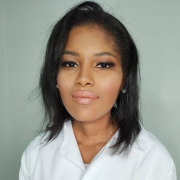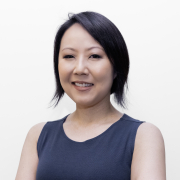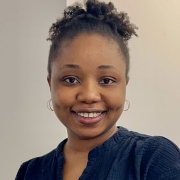1. How did you become interested in research relating to hypertension and cardiovascular disease?
Hypertension and cardiovascular diseases are currently the leading cause of death and the current focus in this area on immune mechanisms was the main reason for my interest in this line of research.
2. Describe your research & the program/lab (info of your supervisor) that you are in?
My PI is Dr. Kafait U. Malik and our lab focuses on studying the role of the enzyme Cytochrome P 450 1 B1 in the pathogenesis of hypertension and other cardiovascular diseases such as Atherosclerosis and Aneurysms. My research focuses on the mechanisms by which CYP1B1 mediates the development of Ang II induced aneurysms and atherosclerosis and specifically its effect on the immune functions such macrophage, T cell and platelet related events that contribute to the pathogenesis of these diseases.
3. What do you consider to be your substantial scientific contribution so far (provide Pubmed PMID if possible)?
I am new to the field of cardiovascular pharmacology so I am yet to publish in this area. My previous publications were in the areas of veterinary immunology.
4. What is your favourite manuscript from a lab or mentor other than your own (provide Pubmed PMID if possible)?
Cellular metabolism as a basis of immune privilege (2006) by Newell et al. This article explains how the energy status of a cell can determine how or if the immune system interacts with the cell. This has broad applications in a wide variety of diseases and disorders.
http://www.ncbi.nlm.nih.gov/pmc/articles/PMC1456959/
Slivka P, Badylak SF. Fractionation of an ECM Hydrogel into Structural and Soluble Components Reveals Distinctive Roles in Regulating Macrophage Behavior. Biomater. Sci., 2014, 2 (10), 1521-1534. This paper shows the broad application of immunology in tissue engineering and regenerative medicine, which is also applicable in cardiovascular regenerative medicine area
5. What facilities are essential for your research?
Flowcytometry, Cell isolation, cell culture, Immunohistochemistry, PCR, Western Blot, Imaging
6. Where do your research strengths lie? Why? What are your research weaknesses? How will you improve?
I hope to develop better invivo imaging skills and 3D cell culture work
7. Describe your unforgettable (proudest) moment in science, and the most challenging situation that you have had to overcome (lessons learnt) so far?
The happiness I felt when I saw the final printed version of my PhD thesis perhaps ranks first on my list. The most important lession that research has taught me is that not to be disappointed with negative results but to develop the resourcefulness to present that data in an innovative way palatable to the scientific community
8. At which conference did you first present? How was your experience?
At the American Association of Immunology Conference 2012 in Boston
9. What upcoming conferences will you be attending, and what is the furthest distance that you have traveled for a conference?
I plan to attend the EB 2015 conference in Boston.
10. How did you learn about ISH/NIN and its activities?
Through the internet (ISH’s website)
11. What area(s) do you wish to specialize in the future?
Immunology, stem cell research and regenerative medicine
12. Who is your role model in Science? Why?
I do not have any specific role model but I appreciate all the hardworking scientists who manage to prevail amidst tough competition and remain passionate in their area of research through the years
13. Are you involved in other scientific or career associations? If yes, how is it helping in your career advancements?
I am involved in the American Association of Immunology, and this I believe helps me to stay in touch with my core area of interest
14. What are your scientific goals? Advise for talented emerging scientists?
To continue to remain commited amidst challenges and develop a niche area for future career prospects.





















